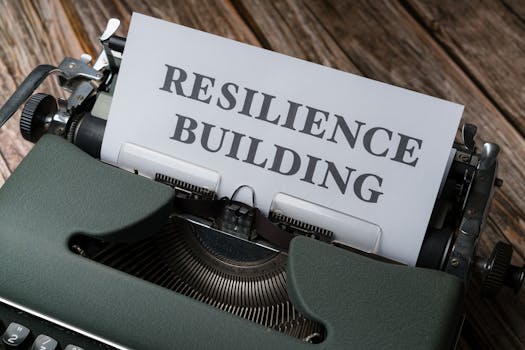
Building Resilience: Overcoming Challenges and Setbacks
Takeaways: Resilience is not an inherent trait but a skill that can be developed through practice and reflection. Embracing challenges and learning from setbacks empowers individuals to grow stronger in the face of adversity. Key strategies include maintaining a positive mindset, building a support network, and practicing self-care.
Life is a journey filled with ups and downs. Challenges and setbacks are inevitable, but how we respond to them can define our path forward. Building resilience is essential for personal growth and mental well-being. In this article, we will explore the importance of resilience, strategies to cultivate it, and how to turn challenges into opportunities for growth.
Understanding Resilience

One of the key aspects of resilience is adaptability. Life can throw unpredictable situations our way, and having the ability to adjust our thoughts and actions accordingly is crucial. Resilient people tend to have a more positive outlook, which helps them manage stress and maintain mental health during tough times.
The Role of Challenges in Building Resilience

For example, consider someone who loses their job unexpectedly. Initially, this situation may seem devastating. However, it can also be a catalyst for personal reflection and career exploration. This individual might take the opportunity to pursue a passion they had set aside, acquire new skills, or network with others in their field. Ultimately, what seems like a setback can lead to a new direction and greater fulfillment.
It’s important to recognize that resilience is a gradual process. Each small victory over a challenge contributes to our overall strength. By celebrating these victories and learning from our experiences, we can build a foundation of resilience that prepares us for future obstacles.
Strategies for Building Resilience

- Maintain a Positive Mindset: Cultivating a positive attitude can significantly impact how you perceive challenges. Practice gratitude and focus on the silver linings in difficult situations.
- Build a Support Network: Surround yourself with supportive friends, family, and mentors who can provide encouragement and guidance during tough times. Sharing your struggles can alleviate stress and foster connectivity.
- Practice Self-Care: Prioritize your physical and mental well-being. Engage in activities that promote relaxation and joy, such as exercise, mindfulness, or hobbies.
- Set Realistic Goals: Break down larger challenges into smaller, manageable tasks. Setting achievable goals can help you maintain motivation and a sense of accomplishment.
- Embrace Change: Accept that change is a part of life. Learning to adapt to new circumstances can enhance your resilience and open doors to new opportunities.
- Learn from Experience: Reflect on past challenges and what you learned from them. This practice can provide valuable insights and prepare you for future obstacles.
Conclusion
Building resilience through challenges and setbacks is a vital skill for navigating life’s complexities. Each experience, whether positive or negative, adds to our resilience and shapes our personal growth. By embracing challenges, maintaining a positive outlook, and utilizing effective coping strategies, we can cultivate a resilient mindset that empowers us to thrive in the face of adversity. Remember, resilience is not a destination but a continuous journey—one that can lead to profound personal transformation and fulfillment.




